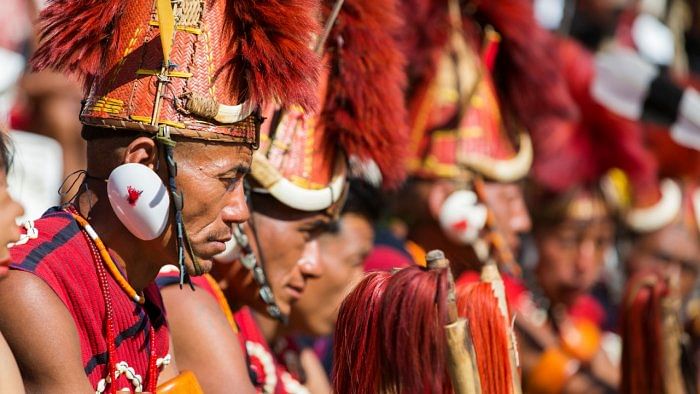
Amid concerns among Naga tribal communities that the Uniform Civil Code (UCC), if implemented nationwide, will impinge on their customary laws and age-old traditional practices, a delegation of Naga leaders met Home Minister Amit Shah and claimed to have received assurance that the Law Commission is considering the exclusion of the Christian community as well as “some tribal” groupings in the state, The Indian Express reported on Saturday.
The publication also reported that Chief Minister Neiphiu Rio led the 12-member Naga delegation that met Shah on July 5, to discuss among other things, concerns surrounding the UCC and the stalled peace talks between the Centre and the National Socialist Council of Nagalim-Isak Muivah (NSCN-IM).
K G Kenye, who serves as spokesperson for the state government and an advisor to the Nationalist Democratic Progressive Party (NDPP) (which rules the state in coalition with the BJP and has already opposed the UCC) said, “We apprised the Home Minister of Article 371 (A), which is applicable to Nagaland and is based on the 16-point agreement signed between the Naga tribes and the Government of India in July 1960. According to this agreement, as well as Article 371 (A), the freedom we exercise in our religious and cultural practices can’t be impinged upon by any Central law passed by Parliament. Only if such a law is also passed by the state Assembly as a resolution, can it become applicable to the state of Nagaland,” adding that Shah "assured us that excluding Christians (in Nagaland) and some tribal communities from the scope of a UCC is being considered by the Law Commission.”
Several tribal and Christian groupings in the state have voiced concerns over a potential nationwide UCC, with the Nagaland Tribal Council (NTC) asserting that the UCC would dilute the provisions of Article 371A of the Constitution, which guarantees that no act of Parliament will apply to the state in matters relating to the religious or social practices of the Nagas or interfere in Naga customary laws.
Echoing the same concern, the Nagaland Baptist Church Council (NBCC) had issued a statement that read, “Codifying the social-cultural and the religious practices by way of negating the deep-rooted values and norms of the people, especially that of the tribals and the religious minority, will amount to violation of the fundamental rights of marginalised minorities in the country.”
Kenye reflected the same apprehensions in talking to the publication, saying, “There is a lot of discontent in Nagaland since the Law Commission notification. If a UCC is extended to Nagaland, it brings into question the validity of Article 371 (A), which is a bridge between mainland India and the Naga people.”